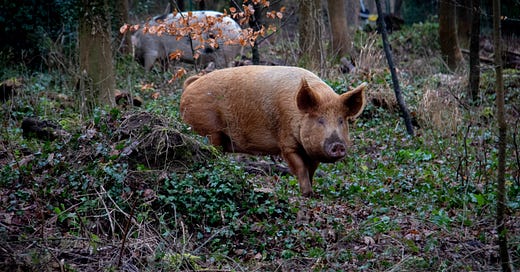Itchy Bitesized 5: Sixteen Things You Need to Become a Writer (and twelve things you don't)
For the full Itchy Bitesized series, click here.
When I meet someone who says they'd love to be a writer but they've never studied Creative Writing, or they can't spell, or they always got bad marks in English at school, I say, with truth, that you don't need any of those things. So, first, let's be clear:
12 things you don't need, to become a writer:
a Creative Writing degree
an English degree
any other degree
super spelling, fancy formal grammar-skills or perfect punctuation
a certain colour of skin, ethnic background or gender identity
an unusual, newsworthy or traumatic past or present
a certain accent
an arty, literary or posh background
a London address
friends or relations in the book industry
good looks
youth
Yes, any of the above may help get you published or performed; the creative industries are like any other industry run by humans, only more so, firstly because creativity is unpredictable and wasteful, and secondly because what happens to your creative work depends on current society's current obsessions, confirmation biases and willingness to pay for their pleasures. But I promise you that not a single one of those twelve things is necessary to becoming a writer.
But there are a few core qualities - temperament, habits, if you prefer - without which you'll struggle to get anywhere with writing.
Photo credit Nick Fewings on Unsplash
6 things you need to start with, to be a writer:
a feeling for language
curiosity
patience for writing (if for nothing else)
roughly equal measures of humility and egotism
a willingness to spend vast amounts of time alone and inside your own head
a habit of reading the kind of thing you want to write
Without a basic (if necessary cultivated) sensitivity to and feeling for language, nothing else you can learn about writing will come to fruition. No, I'm not denying the importance or at least helpfulness of "natural" talent of other kinds, and yes, everyone's talent-wiring has its limits: no amount of teaching can make a silk Proust out of a sow's ear. But I will undertake to help anyone to be a rather better writer - which is to say, anyone can learn to become a better writer - than they are at the moment, provided they can feel the difference betweeen, say, irritated, tetchy, annoyed, cross, irate, angry, enraged, infuriated and furious.
In other words, a huge part of any talent is the capacity and willingness to learn. So, to sustain a life as a writer, what will you need to learn?
10 things you will need to develop as a writer:
resilience
a persistent writing habit
a habit of reading beyond as well as within the boundaries of what you want to write
more resilience
determination
intelligent persistence
more, and more conscious, feeling for language: not just vocabulary and denotation, but connotation, sound and rhythm
a conscious as well as intutive understanding of grammar, syntax and punctuation
a conscious as well as intuitive understanding of structure and story
more resilience
And did I mention resilience? Don't forget that if you're only just starting but would like to go for it, my Write Your First Novel series is specially designed for people who are new to writing fiction. Good luck!





